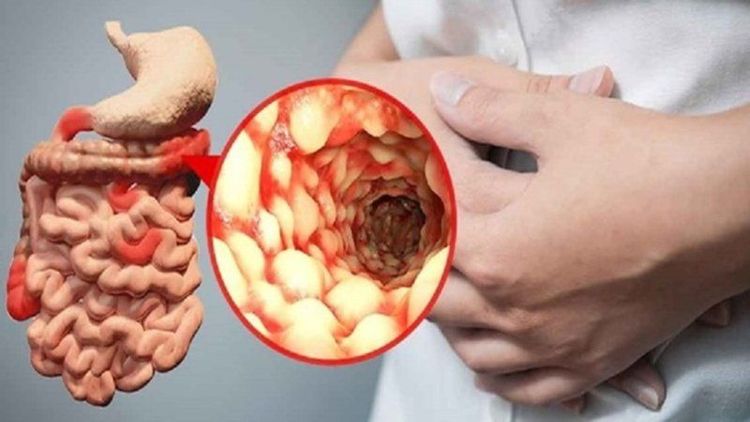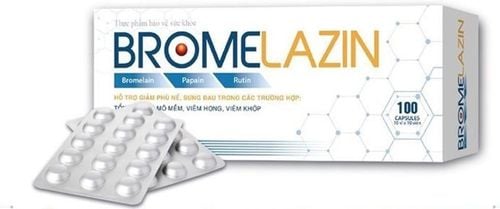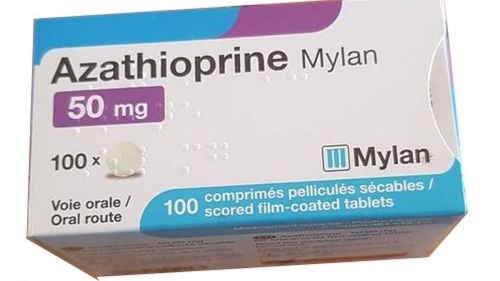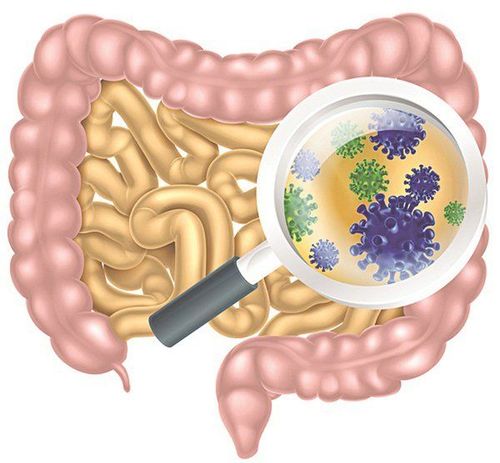This is an automatically translated article.
Inflammatory bowel disease has a complex pathogenesis, including interactions between the immune system, gut microbiota, and genetic factors. These three components are influenced by a number of environmental factors, which may bring the balance to an immune-mediated proinflammatory state in the gut and certain extraintestinal tissues.1. Overview of the causes of secondary enteritis
The extrinsic factors that cause enteritis have been classified into three main groups, namely drugs, surgery, and organ/faecal transplantation. Drugs that can affect immunity and alter it are implicated in the development of drug-induced inflammatory bowel disease, they include immunomodulators, biologics, interferons, stimulants immunosuppressants and immune checkpoint inhibitors.
Intestinal modification surgery can affect the microbiome and lead to malabsorption, especially in the case of bowel resection. Surgery used to treat a disease, such as ulcerative colitis with colectomy followed by an ileostomy-anal anastomosis, has been shown to produce new forms of the disease such as Chronic pouchitis or Crohn's disease of the rectal pouch. The role of immunosuppressive drugs in organ transplant recipients is key in preventing immune-mediated rejection. These immunosuppressants may paradoxically induce autoimmune-mediated inflammatory bowel disease.
2. Inflammatory bowel disease associated with fecal microbiota transplantation
The gut microbiome includes trillions of organisms, such as bacteria, fungi, and viruses. In patients with inflammatory bowel disease there is a dysbiological state of the gut, which plays a role in its pathogenesis. Individuals with recurrent Crohn's disease have significant alterations in the colon microbiota leading to intestinal dysbiosis, which can be successfully treated with fecal microbiota transplantation (FMT). from healthy donors.
Fecal material is introduced via the upper delivery method (oral capsule or nasogastric/jejunal tube) or the lower delivery method (colonoscopy or enema). Among people with inflammatory bowel disease who develop Crohn's disease, fecal microbiota transplantation has been shown to successfully treat 87-91% of cases after a single transplant. Interestingly, this success rate is slightly lower when compared to individuals without inflammatory bowel disease.
Because dysbacteriosis is also seen in inflammatory bowel disease, investigators have used fecal microbial transplantation to treat flares of inflammatory bowel disease with good response, especially in the case of ulcerative colitis. colon. There are a few case reports of Crohn's disease flares responding successfully to fecal microbiota transplantation. It may also have a role among patients with advanced disease who do not respond to biologic therapy. Stool culture has also shown modest improvement in disease severity in cases of chronic pouchitis.
3. Changes in gut microbiota in patients with fecal microbiota transplants Interestingly, individuals treated with fecal microbiota transplants for Crohn's disease appear to have altered Changes in the gut microbiota mirror the donor microbiota and with higher microbial biodiversity. But in patients with inflammatory bowel disease, the post-transplant microbiota resisted this change. This may suggest that the microbiome itself may not be an influential pathogenic mechanism in inflammatory bowel disease but rather a source for stimulating the immune system to promote the disease process, thereby influencing the disease process. affect the intestinal microbiota. This may also explain the lack of consistent response of fecal microbial transplantation in the treatment of inflammatory bowel disease.

Bệnh viêm ruột có cơ chế bệnh sinh phức tạp, bao gồm sự tương tác giữa hệ thống miễn dịch, hệ vi sinh vật đường ruột và các yếu tố di truyền.
4. Disease outbreak rate after fecal microbiota transplantation
Using a fecal microbiota transplant is not a completely safe procedure and has few side effects, especially infection and, in rare cases, death. There have been many reported cases of people with inflammatory bowel disease and Crohn's disease developing flares of inflammatory bowel disease after treatment with fecal microbial cultures. Studies have shown that the rate of disease outbreaks after fecal microbiota transplantation is about 15-25%, which is higher in those who are transplanted through the birth method and lower than in the enteral method. .
Based on these observations, we can speculate that fecal microbial transplantation may also induce the development of new-onset inflammatory bowel disease among individuals carrying the preferred genotype for the disease. . As part of the donor screening process, some fecal transplant specialists continue to exclude people with inflammatory bowel disease, although the authors do not yet have any direct evidence that that such inflammatory bowel disease donors may cause adverse effects in the recipient. Perhaps alterations in the gut microbiota may be more harmful in certain individuals, and further studies are needed to identify the factors that influence the development of culture-associated IBD. transplanted microorganisms in feces.
5. Conclusion Foreign organs or donor stem cells can also induce an immune response that causes immune-mediated tissue damage. Both of these factors can lead to post-transplant organ/stem cell involvement. The interaction between the microbiome and the host immune system is a complex process, and factors that alter gut structure and intestinal homeostasis can reset the immune thermostat of the host. host, triggering the development of inflammatory bowel disease.
Please dial HOTLINE for more information or register for an appointment HERE. Download MyVinmec app to make appointments faster and to manage your bookings easily.
References:
Ghauri YA, Tahan V, Shen B. Secondary causes of inflammatory bowel diseases. World J Gastroenterol 2020; 26(28): 3998-4017 [PMID: 32821067 DOI: 10.3748/wjg.v26.i28.3998]













